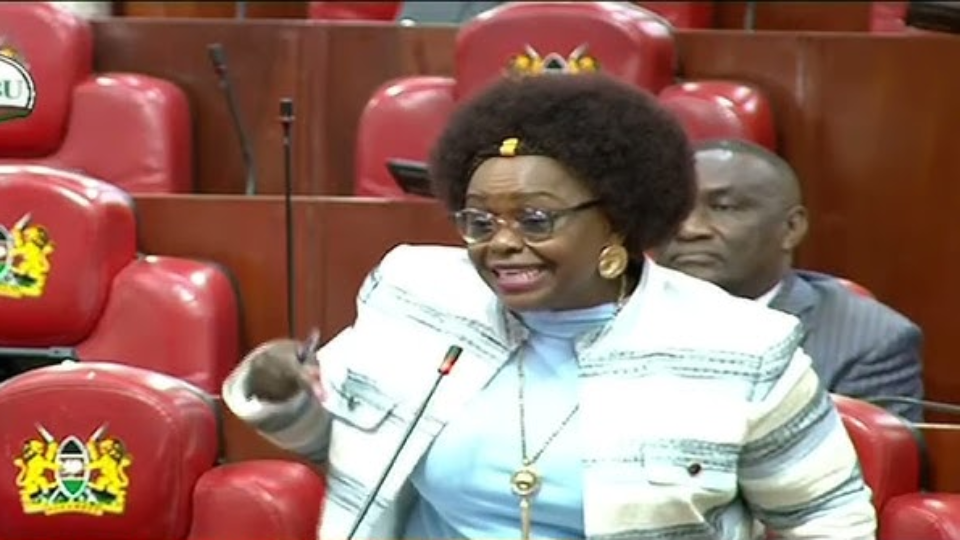Millie Odhiambo Proposes Bill to Limit Parliamentary Nominations
In a bold move aimed at restoring the original intent of affirmative action in Kenyan politics, Suba North Member of Parliament Millie Odhiambo has revealed plans to sponsor a bill that would impose strict limits on the number of times individuals can receive parliamentary nominations. The proposed legislation seeks to prevent politicians from repeatedly securing seats through party nominations without facing electoral scrutiny, a practice Odhiambo argues has diluted the purpose of reserved positions for marginalized groups.
Odhiambo, known for her outspoken advocacy on gender equality and human rights, shared details of the bill in a social media post on September 23. She emphasized that while nominations were designed as a temporary launchpad for underrepresented voices, particularly women and youth, they have evolved into a lifelong shortcut for some politicians. Under current rules, there is no cap on how often a person can be nominated, allowing individuals to bypass competitive elections indefinitely. Odhiambo's bill would change this by restricting nominations to a maximum of one or two instances per individual, after which they must contest and win an elective seat to remain in Parliament.
The announcement comes amid growing public frustration with Kenya's nomination system, which reserves 12 seats in the National Assembly and 16 in the Senate for special interest groups, distributed proportionally among political parties based on their electoral performance. These slots, mandated by the 2010 Constitution to promote inclusivity, have increasingly been awarded to party loyalists rather than fresh representatives from underrepresented communities. Odhiambo, who herself benefited from a nomination by the Orange Democratic Movement from 2007 to 2013 before winning her Suba North seat in 2013, acknowledged her past experience but insisted that enough is enough.
"Nomination serves as a launching pad, and once or twice is enough. After that, please go for a competitive seat," Odhiambo stated in her declaration. She highlighted how repeated nominations undermine the spirit of affirmative action, turning what should be an opportunity for empowerment into a tool for entrenching political elites. For instance, a politician who loses an election can still secure a nomination in the same cycle, provided they did not actively contest a seat, further perpetuating a cycle of non-competitive access to power.
This initiative builds on Odhiambo's long-standing legislative track record. As a trained lawyer and vocal parliamentarian since 2008, she has championed reforms in areas ranging from victims' rights to reproductive health. Just last year, she sponsored the Assisted Reproductive Technology Bill, which aims to integrate fertility treatments into Kenya's public health system and address shortages in specialized training. Her new bill on nominations aligns with these efforts, focusing on electoral integrity and broader democratic participation.
Supporters of the proposal praise it as a step toward greater accountability in Kenyan politics. Civil society groups, including those focused on women's rights, have long called for reforms to ensure nomination slots rotate among new candidates, fostering a more diverse and representative Parliament. "This could open doors for a new generation of leaders who might otherwise be sidelined," said one analyst familiar with the issue, noting that women currently hold about 23 percent of seats in the National Assembly, far short of the constitutional one-third target.
Critics, however, worry that capping nominations might discourage parties from fielding qualified candidates from marginalized groups, potentially reducing overall representation. Some party insiders argue that without flexibility, smaller parties could struggle to meet gender and youth quotas during volatile election cycles. Odhiambo has countered these concerns by pointing out that the bill includes safeguards to maintain proportional representation while prioritizing merit and electoral competition.
The bill is expected to be tabled as a motion in the coming weeks, sparking debates in both the National Assembly and Senate. If passed, it would require amendments to the Elections Act and possibly the Constitution, marking a significant overhaul of how Kenya fills its reserved parliamentary seats. As Parliament resumes its third session after a recent recess, Odhiambo's push could galvanize allies across the aisle, especially among MPs frustrated by the nomination system's perceived abuses.
Odhiambo's career trajectory underscores her commitment to transformative change. Born in Homa Bay in 1966, she rose from human rights activism to national prominence, earning international recognition including commendations for her work on gender and survivor protections. Married to Zimbabwean Magugu Mabona since 2006, she continues to blend personal resilience with policy innovation, often drawing on cultural examples like traditional Luo practices to advocate for progressive laws.
As Kenya approaches its next general elections in 2027, this bill represents more than a procedural tweak; it is a call to reclaim the democratic promise of inclusive governance. Whether it gains traction remains to be seen, but Odhiambo's track record suggests she is prepared for the fight


